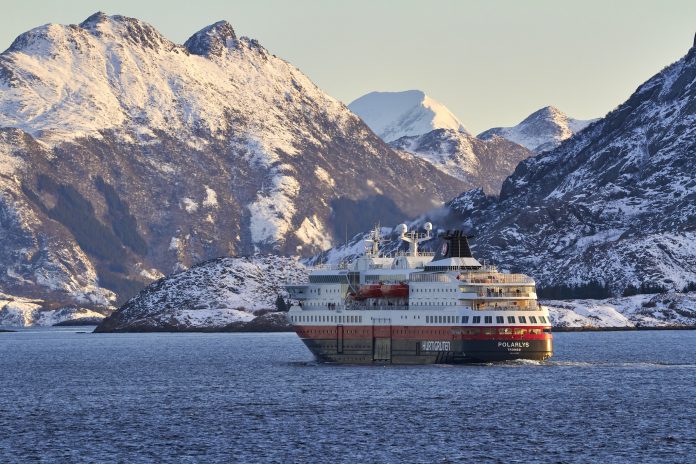There’s a new initiative in Norway to use dead fish to fuel liners. More specifically, the leftovers of fish processed for food and mixed with other organic waste will be used to generate biogas, which will then be liquefied and used in place of fossil fuels by the expedition cruise line Hurtigruten, which operates a fleet of 17 ships.
By 2021, Hurtigruten aims to have converted at least six of its vessels to use biogas, liquefied natural gas – a fossil fuel, but cleaner than many alternatives – and large battery packs, capable of storing energy produced from renewable sources.
As reported by the Guardian, heavy fossil fuels used by ocean-going transport are an increasing problem as they are even more polluting than fuels for land-based vehicles, emitting sulphur and other contaminants. The fuels contribute to air pollution as well as to climate change. Converting vessels to use biogas will cut down on pollutants and reduce greenhouse gas emissions.
Hurtigruten, a 125-year-old company based in Norway, is also banning single-use plastics in an effort to be more environmentally sustainable. It operates cruises in the Arctic and Antarctic, both highly sensitive environments.
What is more, Hurtigruten is currently building three new hybrid-powered cruise ships in Norway, to be delivered in the next three years.
“Norway is a large shipping nation, but fishery and forestry are also large sectors,” said Daniel Skjeldam, the chief executive of Hurtigruten. “They create jobs and produce income, but they also produce a lot of waste products. The steady access to high volumes of organic waste gives the Nordic countries a unique position on the biogas market. We are pushing for more innovation, more investment. I believe we have just seen the beginning of what in a few years will be a huge sector.”

